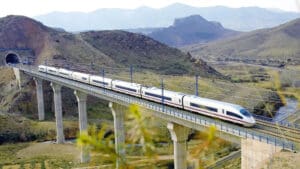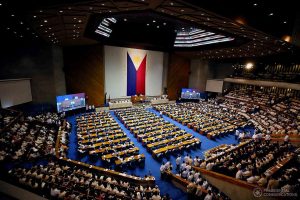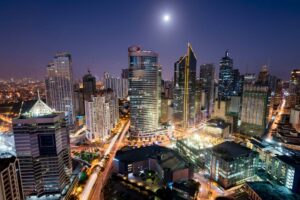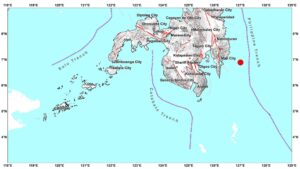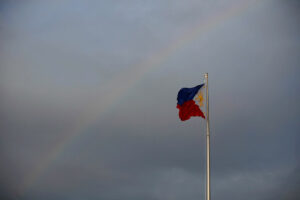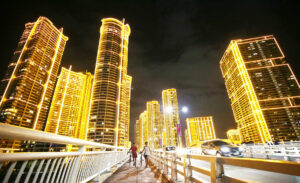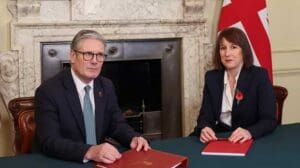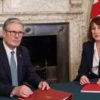By Justine Irish D. Tabile, Reporter
THE Philippines slipped one spot in a global index on economic freedom, despite improvements in some areas, according to the Canada-based think tank Fraser Institute.
The country ranked 62nd out of 165 economies in conservative think tank’s Economic Freedom of the World report, which uses 2023 data. In the previous year’s index, the Philippines ranked 61st place.
This was the Philippines’ lowest placement in the index in two years, or since it ranked 68th in 2021.
Despite the lower ranking, the country’s score inched up to 7.05 out of 10 in 2023 from 7.01 in 2022.
Among Asia-Pacific jurisdictions, the Philippines lagged behind Hong Kong (8.55), Singapore (8.50), New Zealand (8.33), Australia (8.03), Taiwan (8.03), Japan (7.83), Malaysia (7.56), South Korea (7.53), Thailand (7.10), and Brunei Darussalam (7.09).
However, the Philippines was ahead of Indonesia (6.96), Mongolia (6.83), Cambodia (6.79), Vietnam (6.21), China (6.13), Papua New Guinea (6.09), Fiji (6.08), Timor-Leste (5.97), Laos (5.65), and Myanmar (4.46).
The index measures the degree to which citizens are allowed to make their own economic choices through five areas: size of government, legal system and property rights, sound money, freedom to trade internationally, and regulation.
The Philippines had its highest score in the sound money category with 9.01, ranking 34th out of the 165 countries, slightly lower than its previous score of 9.04.
The country’s score in size of government went up to 7.88 from 7.77 previously. Its current ranking was at 21st place from 26th previously.
Manila’s score in regulation also went up to 6.65 (64th) from 6.55 (67th) previously.
However, the country yet again performed worst in the legal system and property rights area with a score of 4.57, ranking 109th. Its score slightly improved from 4.55 previously.
Meanwhile, its score in freedom to trade internationally stood at 7.15, ranking 86th from 87th previously.
Foundation for Economic Freedom President Calixto V. Chikiamco said that the Philippines continues to underperform in the areas of legal system and property rights and trade freedom.
“Particularly in agricultural trade. We are still protecting our agricultural sector with quotas, high tariffs, and other forms of restrictions,” he said in a Viber message.
Meanwhile, Mr. Chikiamco said that the previous administration’s unilateral cancellation of the contracts with the private water concessionaires and refusal to abide by the decision of arbitration proceedings have impacted the country’s overall ranking.
“That and other instances where contracts aren’t honored cause low ratings of the country [in legal system and property rights],” he added.
However, Mr. Chikiamco said that the slight dip in the country’s ranking may also be attributed to improvements in other countries.
“The Philippines can fare better by dismantling agricultural protectionism, reforming an inefficient and corrupt judicial system, removing the Filipino First and Filipino Only provisions in the Constitution, and forging more free trade agreements with more economies,” he added.
Philippine Institute for Development Studies Senior Research Fellow John Paolo R. Rivera said that the results of the index suggest that the Philippines is making progress, but “other economies are reforming faster and more comprehensively.”
“We continue to lag in critical areas like rule of law, regulatory quality, judicial independence, and most especially corruption control, which weigh down its overall ranking,” he said in a Viber message.
To improve, he said that there is a need for the Philippines to strengthen its institutional frameworks.
“It must also enforce property rights, simplify regulations, and promote a more transparent and predictable policy environment to boost investor confidence and economic dynamism,” Mr. Rivera said.
According to the Fraser Institute, economic freedom has been declining since the pandemic.
“Global economic freedom peaked in 2019 but has declined in each of the four years since then, which hasn’t happened since we began measuring economic freedom more than 25 years ago,” Matthew Mitchell, a senior fellow at the Fraser Institute, said in the report.
Hong Kong topped the latest index, followed by Singapore, New Zealand, Switzerland, the United States, Ireland, Australia and Taiwan (tied for 7th), Denmark, and the Netherlands.
However, the Fraser Institute expects US President Donald J. Trump’s tariffs to further depress US economic freedom.
“When countries move to restrict trade freedom, other areas of economic freedom, such as size of government, sound money, and regulatory freedom, often soon follow,” it added.
Meanwhile, the lowest scoring economies on the index were Venezuela, Zimbabwe, Sudan, Algeria, Iran, Myanmar, Argentina, Syria, Libya, and Chad.



